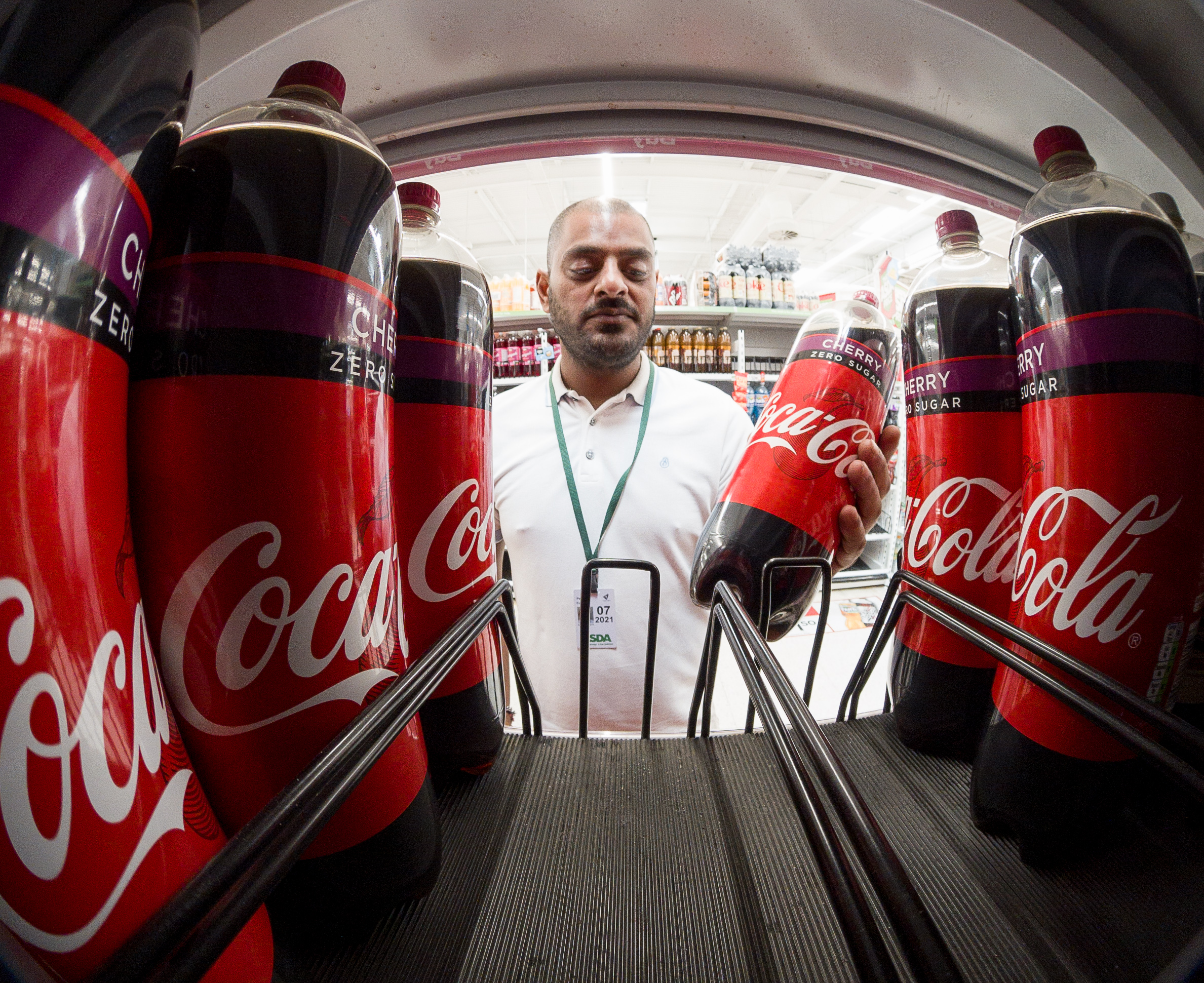Product recall. Those two tiny words can cause a lot of trouble for any brand out there, whether it comes immediately after a much-anticipated launch or as a surprise months down the line.
There are a number of reasons your company might need to mitigate a problem through the use of a product recall, even if it’s simply a precautionary measure.
But things like operational snags, potential safety issues, inaccurate labelling, or even health risks can have a lasting impact on your brand’s image and customer.
That’s why working fast to fix the problem and making sure you’ve ticked off all the appropriate actions on your recall checklist will save you the pain of regulatory headaches (and reputational heartaches) further down the line.
In this handy guide, our industry experts will tell you everything you need to know about product recalls – which you’ve probably already guessed from the title!
From identifying when a product recall is needed to confidently choosing the best course of action, we’ll give you everything you need to know about turning what could be a blow to business into a seriously smart opportunity.
So what are you waiting for? Let’s dive in.
What is a product recall?
At Tactical Solutions, we know your brand is all about creating quality products that your customers love. Of course, it’s not always smooth sailing.
Although you and your team will constantly be on the lookout for potential risks throughout your processes, both externally and internally, sometimes no amount of planning or strategy can catch a problem.
Famously, one of these issues is the dreaded product recall. This often occurs after a product has finally made its way to market, which is why so many brands and companies within the retail sphere are so keen to avoid it.
But who is responsible for a product recall?
When a recall is actioned, the manufacturer or business is accountable for replacing the goods with an alternative product while fixing the issue, as well as compensating any customers that have been affected.
Here in the UK, brands, and businesses are regulated by the Government’s Office for Product Safety and Standards. They are the national regulator for all consumer products except for vehicles, medicines, and food. When it comes to products for edible consumption, the FSA (Food Standards Agency) deals with recalls, guidance, and best practice with dedicated agencies dealing in the automotive and medical sectors.
It goes to show that recalls aren’t just limited to food, although it tends to be the first thing that springs to mind when we think of an industry where the practice seems more frequent.
However, recent high-profile product recall incidents include issues with car floor mats, with Toyota forced to recall over 8.1 million vehicles back in 2010 because of the potential risk of gas pedals getting stuck.
Another memorable recall came from the world of technology – which came after battery faults in the Samsung Galaxy Note 7 caused the sleek smartphones to burst into flame – reportedly costing the company £4.3 billion. According to the BBC, it was also “hugely damaging for the South Korean firm’s reputation.”
As such, a number of problems could prompt the need for swift action across a number of sectors, including the spaces where your brand thrives.
What causes a product recall?
Let’s get down to business.
As mentioned before, depending on the products you create and are selling to consumers, the potential root causes of a problem are vast and varied.
However, the following issues tend to be the top contenders when it comes to recalls:
- Faulty merchandise
- Potential health risk
- Potential safety issues and risk of injury
Whatever the problem, ensuring that your brand has a staunch recall process in place should be your first port of call when it comes to overall customer care.
Although recalls put fear in the hearts of marketers and brand accountants up and down the country, dodgy recalls and a lack of accountability can cost you more in a ruined reputation than it does to quickly remove a product from sale.
If a product is found to be unsafe, “the business could face criminal prosecution” as well as being forcibly told to recall its products from consumers and withdraw the product from the market entirely.
As well as potential issues within the wider retail environment, you could also cause cracks in a previously untarnished customer care record.
In addition to this, your customers could also start legal proceedings against your brand in order to recover any damages resulting from your products.
So now you know what can cause a recall and what repercussions your brand could face if it isn’t sorted.
But let’s get down to the nitty-gritty.
It’s time to talk about what can be done by your brand should you find yourself in the midst of a recall crisis.
What should you do in a product recall crisis?
Battle stations, everyone.
Picture the scene. It’s a normal Monday morning. You’ve just got in and before you can even reach the kettle, you spot a very serious notice on your desk about recalling a product from sale.
Rather than it being ‘one of those days’, this is the perfect chance for your business to take full control of the situation. According to Forbes, recalls can actually ‘enhance customer engagement’, with reports showing that 87% of buyers would rather retain their custom with a brand that handles a recall ‘honourably and responsibly’.
As a brand, you must ensure that the manufacturer has started the process and begin facilitating the manual recall of products throughout your stores.
You can use your own field sales team or outsource, which is where we can come in – but more on that later.
While the physical recall is taking place – including arrangements for the voluntary recall or return of existing products from consumers – this is a key opportunity for your brand to handle the situation and narrative.
By using the following strategies and through the use of proactive channels working at once, such as PR and field sales solutions, you can effectively resolve the issues and rekindle trust with your customers.
So let’s get started.
Every little helps – especially when it comes to third-party regulators
Whether your brand is cooking up products for direct consumption or makes itself useful in another sector, you’ll be expected to comply with the rules and regulations as outlined earlier in this guide.
This is because a recall will often be linked to a potential health risk to your customer base and the wider public, meaning that external parties such as the FSA will have to intervene.
Much like yourselves and your brand, these parties are aiming to get to the bottom of the issue as quickly as possible, involving themselves to ensure that everything is resolved and made right by those who are responsible.
If your brand is dealing with a government agency stepping in, make sure to be as transparent and cooperative as possible. They are here to make sure that proper protocol is being met, which includes a lot of regulatory red tape and box-ticking – which can be a bitter pill to swallow for any company.
Mistakes happen. The sooner your brand accepts that something has gone wrong and is ready to comply with reactionary processes, the quicker and smoother it’ll go overall.
No crises here.
Give it to ’em straight
No one likes bad news.
But in the event of a product recall, your customer service team and marketing channels will be invaluable in holding the front line – especially when a recall is in effect.
Ensuring that your customers are fully in the loop as to what’s happening as soon as a recall is put into effect will help ease any worries, as your client base is likely feeling inconvenienced by a sudden lack of a quality product.
To troubleshoot any questions and reassure your buyers, investing in extras like live chats on your website or even a dedicated customer services helpline with trained professionals can alleviate any stress.
Being informative and completely open about the potential risks of the recalled product is one of the most crucial aspects of customer care, as being forthcoming with as many details as possible will help your buyers feel safe and assured that action is being taken.
Some brands have even held press conferences to smooth over any media fallout, which gives you the opportunity to field queries and stop any damaging misinformation.
Put your money where your mouth is
One of the main fears for brands is the total cost of product recalls.
While it can be easy to get stuck on how much your brand is set to fork out for the trouble (with a renewed focus on maintaining profits), it’s important to remember that your customers have also been burned.
As such, offering a full refund from the get-go is one of the most successful ways to keep your carefully cultivated customer base thriving. Although the loss of revenue is enough to make any account manager wince, its value lies in showing your brand’s integrity and trustworthiness in the long run – something that actively stokes buying behaviour and incentivises retained customers.
Be the best… by preparing for the worst
It’s important to keep a cool head during a ‘crisis’.
But having a plan already in place should the ‘worst’ happen, especially if you are planning on releasing a new product or line to the market, will save you plenty of stress should a recall get, well, called.
Assume the worst from the get-go and make sure that your PR is fool-proof in any kind of situation, especially when your brand image or reputation may be questioned. Make sure to consider the following:
- Outline your messaging in line with existing brand guidelines
- Decide how your situation will be described and displayed to the public
- Prepare contacts of regulatory bodies who will need to be contacted
- Plan how the reaction of customers be managed in case of a recall
- Set out how products should be recalled in case of emergency
No one has a crystal ball (we’re good, but we’re not that good) – so making sure everyone on your team is well-versed in your planning and understands what needs to be done is crucial to pulling off a successful product recall.
If in doubt, the main focus is to react quickly to a recall notice by announcing it to your customer base first. That way, your brand can effectively control any messaging before negative views muddy the picture.
Most importantly, it gives your brand the opportunity to clearly take responsibility for the issue and outline how you are going to deal with it, reassuring your customer base and maintaining your reputation in the long run.
Crisis averted.
Facilitate a seamless recall with Tactical Solutions
Often, the product recall is not the issue itself. It’s all about how brands handle it.
So when you need a team to handle the physical aspect of the recall on the ground, enlisting the help of a well-practised field sales solution can ease the strain back at head office.
That’s where we come in.
At Tactical Solutions, we know how vital it is to work quickly and effectively to respond with tailored product recall strategies across a number of stores, helping to withdraw items from distribution centres, wholesalers, and retailers up and down the country.
With years of award-winning industry experience under our belts, we’re perfectly placed to assist brands with releasing new, quality products back into the supply chain while recalled pieces are needed for examination and tests.
Combining cutting-edge technology and unbeatable people skills, we can open lines of communication with the best people in your retailers and find the best way to get your products up and moving again.
We know that no brand – or recall situation – is the same, which is why our methods are tailored and executed exactly when and where you need them.
Get in touch today
Sounds like a plan?
Give our friendly team a call and find out how we can calm any product recall crisis.




